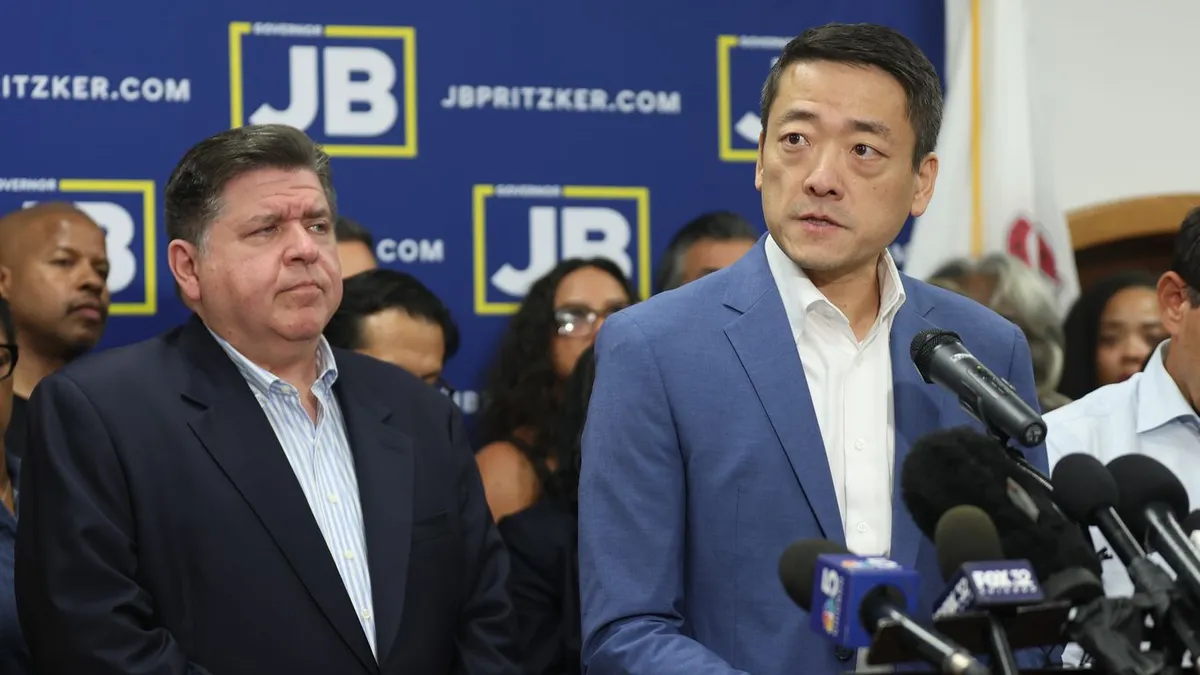
On Monday, Texas Democrats reconvened for a second special legislative session after previously breaking quorum to thwart a controversial redistricting vote. This strategic move by a significant number of House Democrats, who temporarily left Texas in response to a Republican push to create five additional districts favoring the GOP, has ignited a nationwide discussion regarding legislative tactics and electoral fairness.
The departure of dozens of House Democrats not only aimed to block the redistricting efforts but also sparked a broader conversation about the implications of such actions. The situation has fed into a strategy of maximum retaliation, drawing attention to the ongoing battle over political representation. As the Texas House reached quorum and commenced the session at noon on Monday, House Speaker Rep. Dustin Burrows (R-Lubbock) addressed the situation, noting that those who had been absent would only be allowed to leave with written permission after agreeing to be under the custody of a designated DPS officer. This measure is intended to ensure their return for subsequent legislative activities.
In a significant shift, Texas Democrats announced their return to the second special session, following legal counsel suggesting that their presence was crucial for establishing a public legislative record in anticipation of a court battle over the proposed redistricting maps. This tactical decision is closely tied to California's counter-redistricting initiative aimed at offsetting Republican gains. Governor Greg Abbott convened the second special session immediately after the first adjourned, maintaining the original agenda focused on redistricting while also introducing a new item aimed at enhancing youth camp safety.
The proposed redistricting map has been influenced by President Trump's advocacy, marking an effort to bolster GOP prospects in retaining control of the U.S. House during the upcoming midterm elections. Speaker Burrows highlighted the resilience of the Texas legislative body, stating that despite historical challenges, including wars and economic downturns, the chamber would endure this latest conflict. He emphasized the importance of majority rule while also acknowledging the minority's right to be heard.
Texas House Democratic Caucus Chair Rep. Gene Wu articulated the party's stance, noting that while the Democrats were aware that the maps might still pass, their walkout was intended to raise awareness across America. He criticized the proposed maps as racist and unconstitutional gerrymanders, claiming that their actions were part of a larger movement advocating for fair representation. Wu asserted that the Democrats emerged from this conflict more formidable and ready to engage in discussions about crucial issues like flood relief.
The initiative to redraw congressional districts mid-decade in Texas has prompted similar actions in other states. Notably, Vice President JD Vance has urged Indiana to create additional GOP seats in light of Texas's actions. In response, California Governor Gavin Newsom remarked that if the Texas plan proceeds, he would seek voter approval to redraw California districts, potentially flipping several Republican seats.
The Texas House is scheduled to reconvene at 10 a.m. on Wednesday, where a committee will plan a hearing regarding the proposed redistricting map. As the situation develops, it will be crucial to monitor the implications of these legislative maneuvers on both state and national levels.
The ongoing events in Texas serve as a critical reminder of the profound impact that redistricting and legislative strategies can have on political representation. As the Texas Democrats engage in this high-stakes battle, their actions may influence similar movements across the nation, shaping the political landscape leading up to the 2026 elections.